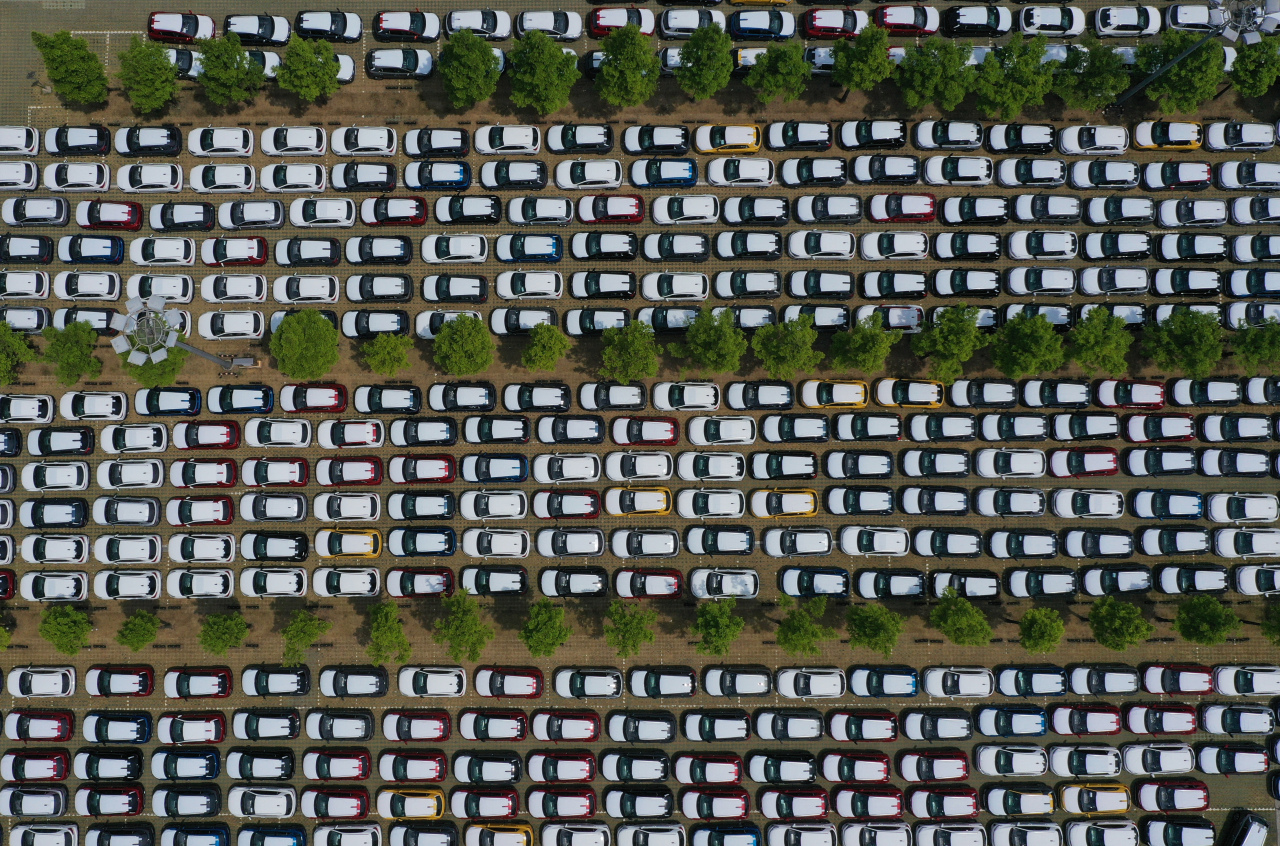Cargo truckers’ strike deepens inflation, supply chain woes
Business lobbies call for immediate resolution, saying damage is snowballing across industries
By Kim Da-solPublished : June 12, 2022 - 18:00

South Korea’s unionized cargo truckers continued their sixth day of a general strike on Sunday, posing a fresh threat to the local economy amid lingering woes over higher inflation and supply chain disruptions.
Cargo truckers here began a nationwide indefinite strike on Tuesday, urging the government to extend a freight rate system that guarantees a basic level of pay. Drivers say that without the higher rate, they feel under pressure to drive dangerously fast to make ends meet.
The interim system, adopted in 2020 as part of a revision to related laws, is set to expire in Dec. 31 this year, with parliamentary talks stalled largely due to resistance from businesses complaining about heightened financial burdens.
According to government estimates, some 27 percent, or 5,860 members, of the 22,000-strong Cargo Truckers Solidarity, under the wing of the Korean Confederation of Trade Unions, are participating in the weeklong strike, as of Sunday afternoon.
Especially hit hard are industries like auto, steel and construction that heavily rely on truckers to secure a supply of key parts and materials.
The Transport Ministry said trade volume at Busan Port, the nation’s largest, is estimated to have plunged more than 75 percent since the walkout, while other ports and logistics hubs also have seen some 10 percent fall in their cargo volumes.
On Sunday, business lobby groups released a joint statement urging the government to act immediately to speed up talks with the union and prevent further damage across industries.
“To prevent a great ripple effect (of a general strike) on the national economy at an early stage, the government should actively review ordering cargo truckers to resume work. Authorities should also rebuild constitutionalism in the industries by responding to any kind of violence or interruption with legal principles,” the Korea Enterprises Federation and the Federation of Korean Industries said in a statement.
Based on the 2003 revision of the Trucking Transport Business Act, the government can cancel a trucker’s license when the strike participant refuses a government order to return to work. The law has never been enforced.
Despite calls for the protracted disputes to be settled immediately, there is little sign of agreement between the government and the union.
Adding to worries is President Yoon Suk-yeol’s hard-line stance on the collective action of unionized workers. Last week, Yoon reiterated that the government will handle the issue based on the rule of law, hinting that he has no intention to intervene in labor-management disputes.
On Sunday, the Transport Ministry said they held the fourth round of negotiations with representatives from the truckers’ union after a 10-hour-long talk fell apart the previous day.
Experts warned that prolonged supply disruptions can deal a blow to the nation’s productivity overall in the long term.
“Issues including the Russia-Ukraine war are expected to impact the local economy throughout the year, and the worst-case scenario can happen when the supply disruption extends over a long period of time and leads to financial instability,” said Heo Jin-wook, head of the Korea Development Institute’s economy outlook division.
Companies like Hyundai Motor Group suspended operations of four factories inside its Ulsan plant due to a delay in auto parts supply, where some 11,000 trucks carrying auto parts usually arrive daily. At the entrance of the plant, union members have blocked the entry of commercial vehicles carrying auto parts, with only a handful of trucks owned by non-union members being allowed to enter.
The Korea Auto Industries Coop. Association said the latest strike will also add to the burden on consumers as it already takes up to around 12 to 18 months for a delivery of a new car due to the auto chip shortage.
“We strongly denounce unionized cargo truckers for using the automotive industry just to achieve their goal of raising basic wages,” the association said in a statement.
Latest figures have shown that the South Korean economy is already suffering a downward turn.
In May, the Consumer Price Index rose 5.4 percent on-year, while the index for living necessities soared to 6.7 percent. South Korea’s inflation outpaced forecasts, accelerating beyond 5 percent for the first time in 13 years and nine months since the 2008 global financial crisis, according to Statistics Korea.
Bank of Korea data showed that South Korea’s economy grew 0.6 percent in the first quarter this year from three months earlier, lower than the 0.7 percent growth estimated in April. The country also posted its first current account deficit in two years in April.








![[Kim Seong-kon] Democracy and the future of South Korea](http://res.heraldm.com/phpwas/restmb_idxmake.php?idx=644&simg=/content/image/2024/04/16/20240416050802_0.jpg&u=)








![[KH Explains] Hyundai's full hybrid edge to pay off amid slow transition to pure EVs](http://res.heraldm.com/phpwas/restmb_idxmake.php?idx=652&simg=/content/image/2024/04/18/20240418050645_0.jpg&u=20240418181020)

![[Today’s K-pop] Zico drops snippet of collaboration with Jennie](http://res.heraldm.com/phpwas/restmb_idxmake.php?idx=642&simg=/content/image/2024/04/18/20240418050702_0.jpg&u=)